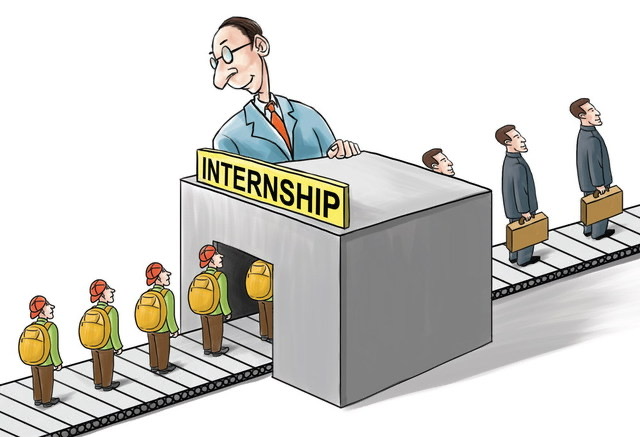Each year, an estimated 20 million students enroll in higher education, willingly plunging themselves into thousands of dollars in student loans in the hopes that their degrees will earn them jobs in their desired fields.
While the degree itself is important, many employers would argue that the field-related experiences students participate in while in college are even more important, as most entry-level jobs require two-to-five years experience.
To get that experience, most degree programs require some sort of internship or experiential learning. Education majors have student teaching, nursing majors have clinicals and other majors require study abroad or mission work, but altogether most majors require some kind of internship.
While some companies pay their interns, these kind of internships are rare – and extremely competitive at that. Many internships require the student to relocate for the summer but offer no stipend or pay that would aid the student’s living costs.
Legally, the Fair Labor Standards Act does not consider interns employees because they are “the primary beneficiary of the arrangement.” Therefore, students can be paid in knowledge for a full-time job’s worth of labor and fetching coffee as long as they’re learning.
You could try and get an internship in your hometown and stay with family, but many students don’t have the ability to stay with family for an extended period of time for free and unless your family lives in a metropolitan area, your pickings for an internship are slim.
Not paying interns enough to cover their cost of living forces them to get a second full-time job. Working 40 hours a week at an internship as well as 40 hours a week at a job is not only exhausting, it’s nearly impossible.
The “typical” workday is 9-5, so a student would be expected to work 9-5 at their unpaid job, turn around and go to their second job. Since they aren’t college graduates and don’t have any experience, they’re limited to low-paying jobs in food service or retail. These jobs make an average of $10-$12 per hour, so even working full-time they’d barely make enough to pay living costs and they would be working 80 hours a week.
This isn’t the case for students whose families are able to pay all of their bills. These students can accept whatever internship they qualify for, work their 40 hours and spend the rest of the time with family, friends and doing any homework or additional work their job provides.
Students from low-income families shouldn’t have to struggle in order to get equal experiences to those who come from wealthier families and get a job post-graduation. While it is expected that interns aren’t going to be paid as much as an employee with a degree, interns should be paid equal to their living expenses.
There is no reason that college students should be expected to work for free when no one else would be expected to do so. Making internships unpaid only makes it easier for the wealthy to be employed and the poor to struggle.



I am confused by the author’s claim that “most entry level jobs require two to five years experience.” The linked article from indeed.com says:
“Many entry-level jobs may choose not to consider candidates that have no job experience. Most recent graduates or individuals who are changing career-paths may not have relevant experience before they apply for an entry-level job.”
and later,
“An entry-level job is a position that requires basic skills and little job experience to obtain.”
I find these items difficult to square with her statement in the article. Am I not seeing where she was quoting?
Maybe that wasn’t the best reference for that statistic. Here’s a better one:
https://talent.works/2018/03/28/the-science-of-the-job-search-part-iii-61-of-entry-level-jobs-require-3-years-of-experience/
Further, you write:
“Not paying interns enough to cover their cost of living forces them to get a second full-time job.”
Not if they or their parents have prepared for college and chosen one whose expenses they can manage. And if not, they are still choosing to get a second job, and even then, perhaps they have arranged their lives in such a way that they can work part-time rather than full time. There are many variables the author is not considering related to expenses and preparation.
And finally, you write:
“There is no reason that college students should be expected to work for free when no one else would be expected to do so.”
But you’ve already written in your article that the student is the beneficiary of the arrangement; the student gains valuable learning and experience, which he or she has voluntarily agreed to accept in lieu of pay. This is, indeed, what an internship is for.
I think you might have missed the point of the article. Sorry if I wasn’t unclear. This article is talking about how not paying interns negatively impacts students from low-income households. Low-income households haven’t saved tens of thousands of dollars for a student to go to college. Calculating living costs proves that part-time jobs are not enough to live off of. I am disagreeing in the concept that paying someone in experience is an okay thing to do. Thanks for commenting!